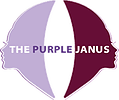The Management Committee of the RSC is broadening its portfolio of activities for its members to provide training workshops focused on project management, leadership, communication and other skills. The need for these skills has been signaled in a survey where members have asked for support in developing their careers.
In response to this, the Management Group will provide a series of four bite-sized workshops which will be held over the course of three months to explore different facets of project management in a practical, hands-on way. The objectives of these workshops will be
· To familiarise participants with simple, project management tools and techniques which they would be able to employ in their team, stakeholder group or wider organisational settings;
· To enable learning and sharing experiences in an interactive format of the workshops;
· To provide opportunities for participants to network and make new connections
The workshops will take place at the RSC in Burlington House from 18:00 hours to 21:30 hours on the following dates:
30th September 2019
22nd October 2019
18th November 2019
11th December 2019
The four sessions are:
1) Getting it right versus almost right – the initial project set-up and planning
“Setting oneself on a predetermined course in unknown waters is the perfect way to sail straight into an iceberg” (Henry Mintzberg, The Rise and Fall of Strategic Planning)
As scientists, we know how to successfully run research projects, with a clear hypothesis and a project protocol, but what if our project needs to take place outside a controlled setting to involve a wide range of people and in a complex, unpredictable environment? What are the common pitfalls and misconceptions in practical project management in such an environment and how to avoid them?
This opening session will explore the principles of setting up complex, multi stakeholder or team-based projects, starting from exploring the environment in which they will take place – its key factors, trends, leverages and risks – to developing the right vision, clear aims and objectives, adaptive strategic and operational approaches and success measures.This session will be practical, interactive and scenarios- based to provide real life skills and a fun learning experience.
Session outcomes:
· Participants are able to process map to identify the context for their project and factors contributing to project success;
· Participants are able to set SMART objectives for their project, including the key success factors and levers necessary to make success happen, and link them with success measures;
· Participants are able to develop action plans with clear milestones and based on available resources;
2) Are your stakeholders mere tick-boxes? – how to get the right people and build relationships for your project
One of the biggest, yet often underestimated challenges of any people-facing project, is actually winning people over to support it, be it as funders, customers, decision-makers, influencers of colleagues. The key to success is to involve the right people at the right time – starting from person-centred design, to ensure it meets the expectations of the end users and through to further scale-up and sustainability, when we need the right supporters to protect and grow its fruits.
This session will guide the exploration of who our project stakeholders are and offer practical tools and techniques on engaging different types of stakeholder groups to maximise the success potential and minimise some project risks.This session will be practical, interactive and scenarios- based to provide real life skills and a fun learning experience.
Session outcomes:
· Participants are able to identify the key stakeholders in their project, assign them roles and identify the correct mode of engagement;
· Participants have the skills to communicate and engage with their target audiences in a way to secure buy-in;
3) Expect the unexpected – project risk management and resilience thinking
“In complex environments, resilience often spells success, while even the most brilliantly engineered fixed solutions are often insufficient or counterproductive” (Stanley McChrystal, Team of Teams)
Risk management has a tendency to go one of two ways in projects – marginalised or centre stage. We all heard of projects, often high profile and expensive, gone wrong because of ignored or underappreciated risks. Even more common is a situation in which risk averse organisations or project groups, try to project plan and manage to predict and avoid all risks, often compromising on many opportunities or ending up hit by something they did not account for.This session will explore risk identification and management from the point of view of resilience building – understanding that in complex, changing environments and in multi-faceted projects, threats and issues do happen but can be withstood or sometimes even turned into an opportunity.
This session will be practical, interactive and scenarios- based to provide real life skills and a fun learning experience
Session outcomes:
· Participants understand how to identify risks and threats to their project and plan mitigating actions;
· Participants are able to develop and embed project control in planning and delivery so as to prevent risks from escalating;
· Participants are able to employ contingencies and rescue measures where a risk becomes an issue;
4) Success! Now what? – disseminating, spreading, or sustaining our project
“Steal shamelessly, share seamlessly” (an old Quality Improvement mantra)
We have all been there – the project did its job, resulting in a new product, service or process, then ran out of steam (time, money, energy) or, it has been a success and there is appetite for growing or spreading it further. How do we go about it and when, so we don’t miss the boat, on taking our project further?
The closing session will look at identifying opportunities for spread or growth in our project, and planning accordingly exploring a range of actions (depending on what the project was) starting from dissemination of findings, through spreading to other parts of organisation or sector, to linking up with other projects and organisations in a scale-up effort. The closing workshop will in fact take us back in a full circle to the initial discussion on the aims and objectives and project planning.
This session will be practical, interactive and scenarios- based to provide real life skills and a fun learning experience.
Session outcomes:
· Participants improve their thinking around project planning to include its use and importance once the project cycle is over;
· Participants are able to conduct a reflection and consolidation of their project results to identify the correct way of sustaining its results;
· Participants have the knowledge and skill to utilise the project outputs and outcomes after closure.
In response to this, the Management Group will provide a series of four bite-sized workshops which will be held over the course of three months to explore different facets of project management in a practical, hands-on way. The objectives of these workshops will be
· To familiarise participants with simple, project management tools and techniques which they would be able to employ in their team, stakeholder group or wider organisational settings;
· To enable learning and sharing experiences in an interactive format of the workshops;
· To provide opportunities for participants to network and make new connections
The workshops will take place at the RSC in Burlington House from 18:00 hours to 21:30 hours on the following dates:
30th September 2019
22nd October 2019
18th November 2019
11th December 2019
The four sessions are:
1) Getting it right versus almost right – the initial project set-up and planning
“Setting oneself on a predetermined course in unknown waters is the perfect way to sail straight into an iceberg” (Henry Mintzberg, The Rise and Fall of Strategic Planning)
As scientists, we know how to successfully run research projects, with a clear hypothesis and a project protocol, but what if our project needs to take place outside a controlled setting to involve a wide range of people and in a complex, unpredictable environment? What are the common pitfalls and misconceptions in practical project management in such an environment and how to avoid them?
This opening session will explore the principles of setting up complex, multi stakeholder or team-based projects, starting from exploring the environment in which they will take place – its key factors, trends, leverages and risks – to developing the right vision, clear aims and objectives, adaptive strategic and operational approaches and success measures.This session will be practical, interactive and scenarios- based to provide real life skills and a fun learning experience.
Session outcomes:
· Participants are able to process map to identify the context for their project and factors contributing to project success;
· Participants are able to set SMART objectives for their project, including the key success factors and levers necessary to make success happen, and link them with success measures;
· Participants are able to develop action plans with clear milestones and based on available resources;
2) Are your stakeholders mere tick-boxes? – how to get the right people and build relationships for your project
One of the biggest, yet often underestimated challenges of any people-facing project, is actually winning people over to support it, be it as funders, customers, decision-makers, influencers of colleagues. The key to success is to involve the right people at the right time – starting from person-centred design, to ensure it meets the expectations of the end users and through to further scale-up and sustainability, when we need the right supporters to protect and grow its fruits.
This session will guide the exploration of who our project stakeholders are and offer practical tools and techniques on engaging different types of stakeholder groups to maximise the success potential and minimise some project risks.This session will be practical, interactive and scenarios- based to provide real life skills and a fun learning experience.
Session outcomes:
· Participants are able to identify the key stakeholders in their project, assign them roles and identify the correct mode of engagement;
· Participants have the skills to communicate and engage with their target audiences in a way to secure buy-in;
3) Expect the unexpected – project risk management and resilience thinking
“In complex environments, resilience often spells success, while even the most brilliantly engineered fixed solutions are often insufficient or counterproductive” (Stanley McChrystal, Team of Teams)
Risk management has a tendency to go one of two ways in projects – marginalised or centre stage. We all heard of projects, often high profile and expensive, gone wrong because of ignored or underappreciated risks. Even more common is a situation in which risk averse organisations or project groups, try to project plan and manage to predict and avoid all risks, often compromising on many opportunities or ending up hit by something they did not account for.This session will explore risk identification and management from the point of view of resilience building – understanding that in complex, changing environments and in multi-faceted projects, threats and issues do happen but can be withstood or sometimes even turned into an opportunity.
This session will be practical, interactive and scenarios- based to provide real life skills and a fun learning experience
Session outcomes:
· Participants understand how to identify risks and threats to their project and plan mitigating actions;
· Participants are able to develop and embed project control in planning and delivery so as to prevent risks from escalating;
· Participants are able to employ contingencies and rescue measures where a risk becomes an issue;
4) Success! Now what? – disseminating, spreading, or sustaining our project
“Steal shamelessly, share seamlessly” (an old Quality Improvement mantra)
We have all been there – the project did its job, resulting in a new product, service or process, then ran out of steam (time, money, energy) or, it has been a success and there is appetite for growing or spreading it further. How do we go about it and when, so we don’t miss the boat, on taking our project further?
The closing session will look at identifying opportunities for spread or growth in our project, and planning accordingly exploring a range of actions (depending on what the project was) starting from dissemination of findings, through spreading to other parts of organisation or sector, to linking up with other projects and organisations in a scale-up effort. The closing workshop will in fact take us back in a full circle to the initial discussion on the aims and objectives and project planning.
This session will be practical, interactive and scenarios- based to provide real life skills and a fun learning experience.
Session outcomes:
· Participants improve their thinking around project planning to include its use and importance once the project cycle is over;
· Participants are able to conduct a reflection and consolidation of their project results to identify the correct way of sustaining its results;
· Participants have the knowledge and skill to utilise the project outputs and outcomes after closure.










